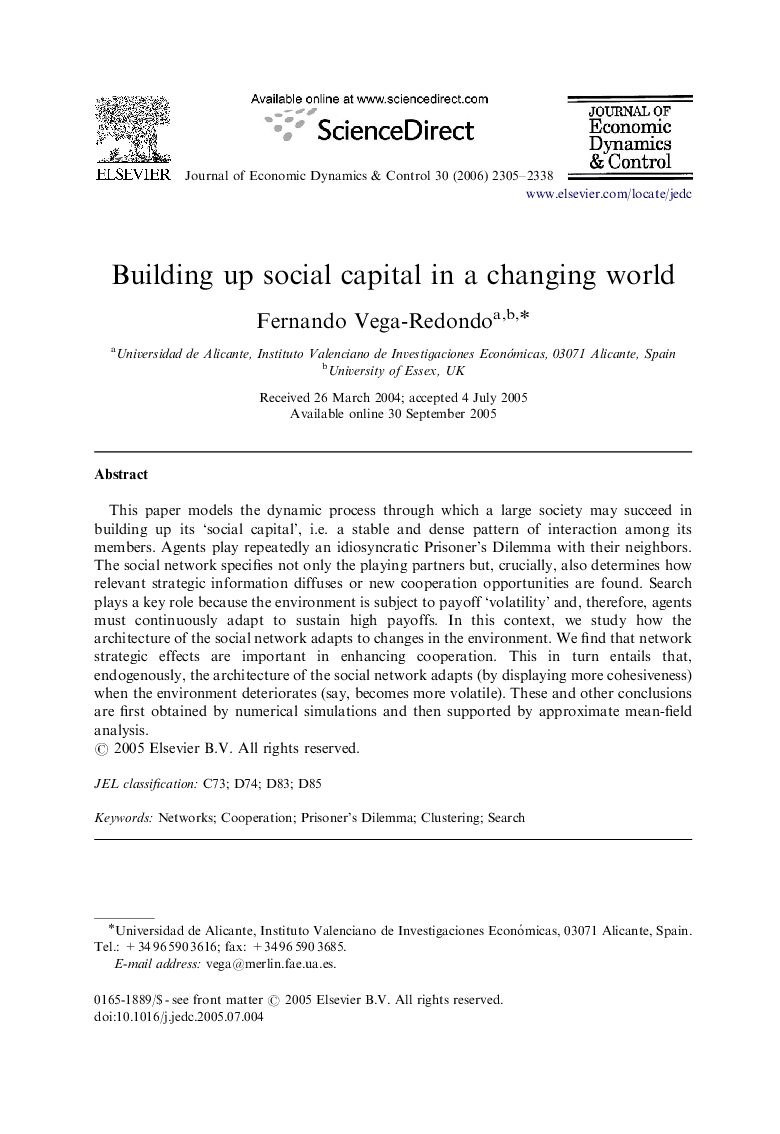| Article ID | Journal | Published Year | Pages | File Type |
|---|---|---|---|---|
| 5099729 | Journal of Economic Dynamics and Control | 2006 | 34 Pages |
Abstract
This paper models the dynamic process through which a large society may succeed in building up its 'social capital', i.e. a stable and dense pattern of interaction among its members. Agents play repeatedly an idiosyncratic Prisoner's Dilemma with their neighbors. The social network specifies not only the playing partners but, crucially, also determines how relevant strategic information diffuses or new cooperation opportunities are found. Search plays a key role because the environment is subject to payoff 'volatility' and, therefore, agents must continuously adapt to sustain high payoffs. In this context, we study how the architecture of the social network adapts to changes in the environment. We find that network strategic effects are important in enhancing cooperation. This in turn entails that, endogenously, the architecture of the social network adapts (by displaying more cohesiveness) when the environment deteriorates (say, becomes more volatile). These and other conclusions are first obtained by numerical simulations and then supported by approximate mean-field analysis.
Related Topics
Physical Sciences and Engineering
Mathematics
Control and Optimization
Authors
Fernando Vega-Redondo,
